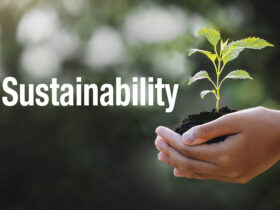On a balmy day on Richard Branson’s island in the Caribbean several years ago, a conference was hosted by famed philanthropist and first president of eBay Jeff Skoll. Attending the conference were many of his ilk – major philanthropists hoping to use their fortunes to advance humanity for the better – including Laurene Powell Jobs and Bill McGlashan, a managing partner at the private equity firm TPG and founder of its growth equity investment arm TPG Growth.
The major topic of discussion at the conference was how to harness capitalism and utilize it to innovate change at a global level. McGlashan had previously worked in several developing nations such as China and Chile, and spent a year in India with his family in order to become better acquainted with the Asian markets. He witnessed firsthand the power of capitalism as an economic system, and how it could rapidly and effectively foster a middle income bracket and create a dynamic economy.
McGlashan left the summit with two thoughts turning over in his head. Firstly, while inspiring on its own, he believed that there had to be a way for the influential individuals attending the conference to engage more methodically and on a continual level instead of during a long weekend. Secondly, NGOs may have lacked the scalability and sustainability to crack the large systemic issues facing the world, but capitalism didn’t. The gears in his head turning, he began to formulate a plan to utilize TPG’s resources of capital access and strategy toward investments that were simultaneously profitable and impactful on a social and environmental level.
After a subsequent meeting with Skoll and musician/activist Bono, the trio made the decision to go all in and devote their efforts toward making McGlashan’s idea a reality. Bringing in the management consultant Bridgepan to work on an impact evaluation and measurement process, their goal was to go further than impact funds of the past had done. In their current state, impact funds were fairly peripheral and often aligned more with philanthropy rather than a rigorous fiduciary investment approach, but partnering with TPG allowed them to create one at scale while employing a high level of measurement and reporting to satisfy high-level investment standards.
Today, that idea has become The Rise Fund, the largest impact fund ever raised. Cumulatively, the fund has invested $2.1 billion across more than 25 investments, 12 of which are headquartered in emerging markets. Applying the United Nations’ Sustainable Development Goals (SDGs) as a roadmap to social and environmental impact, The Rise Fund has created quantifiable benefits worth $26 billion, including preventing the emission of over 2.7 million metric tons of CO2, preserving six million acres of land, reducing energy costs by $10 million for low-income households, offering financial wellness programs to two million low-income individuals, and allocating more than $350 million to research and development for groundbreaking healthcare innovation.
McGlashan’s work on The Rise Fund has arguably shifted the impact investing world considerably, opening investors eyes to the possibility of having a net positive impact while still creating returns.












